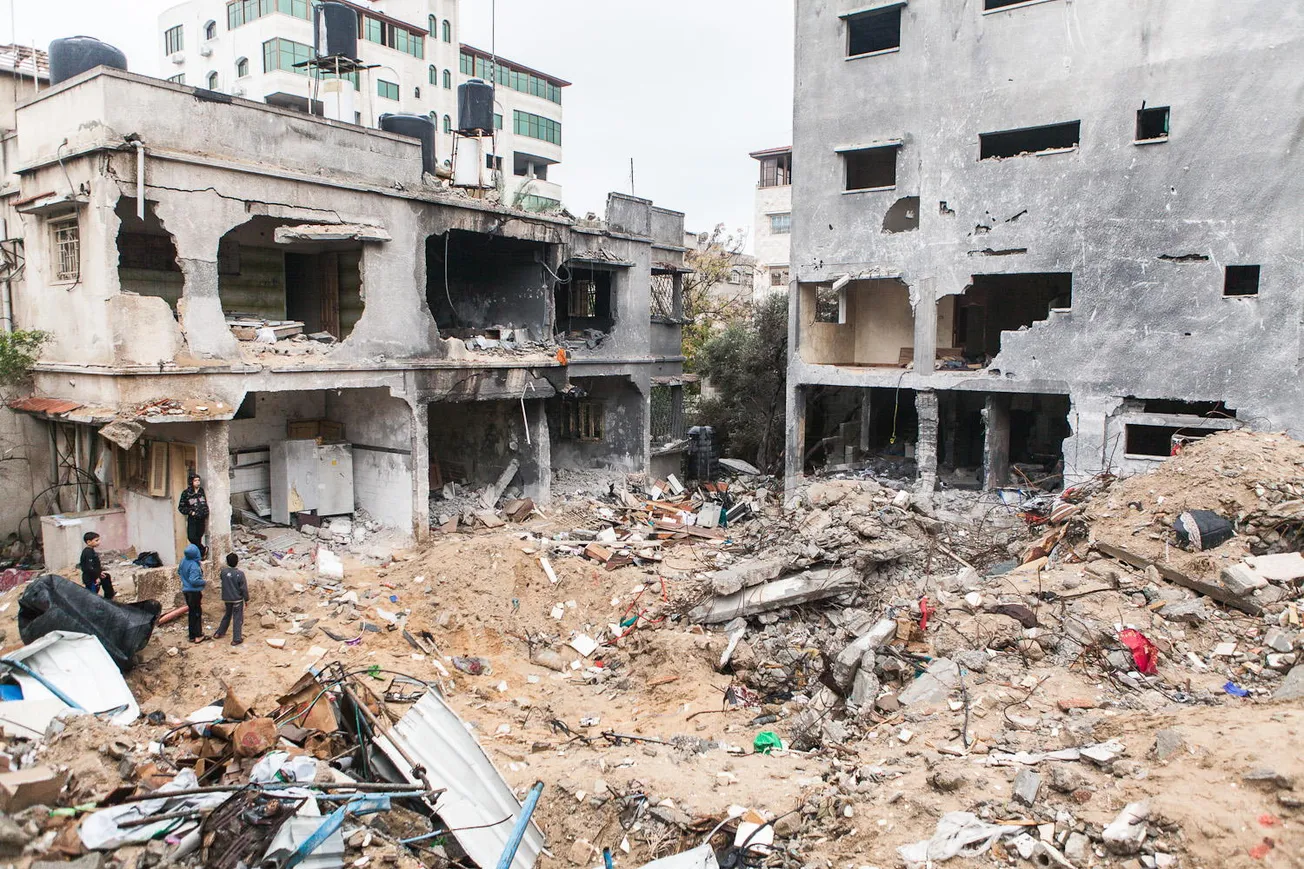Although decisions are more commonly justified by reference to necessities imposed by the past than by the demands of what is to come, justice can be achieved only with reference to the future. Responsibility is more easily assigned than taken, but the current terrifying crisis calls us to take responsibility for installing a new security and development architecture for the world.
The contrast between looking back to the past and seeing forward toward the future is brought out starkly by current history. As the Third Belt and Road Forum for International Cooperation kicks off in Beijing, new horrors are unleashed in what is called the Middle East.
Every hour brings new heartache in the events in Israel-Palestine. The Rafah border crossing between Gaza and Egypt has been bombed, preventing the convoy of trucks laden with aid from reaching the needy. The Al-Ahli Baptist Hospital in Gaza was destroyed, killing hundreds. “This is a struggle between the children of light and the children of darkness, between humanity and the law of the jungle,” read a since-deleted tweet by Israeli Prime Minister Netanyahu.
CIA veteran Paul Pillar writes of Israel’s vicious response to the murderous attack by Hamas: “Israel has now embarked on a violent offensive against the Gaza Strip and its residents. … [I]t is in large part an act of raw revenge. It is a national catharsis amid an atmosphere of intense grief and anger,” he writes. While outrage against the attack by Hamas is understandable, “Being understandable is not the same as being wise or effective, for Israel itself or for regional peace and security.”
It was through crisis management—responding to the present, rather than a plan for the future—that the United States was led into its degradation following the inauguration of the George W. Bush administration and 9/11. In January 2001, Lyndon LaRouche warned of “provocations, which will be used to bring about dictatorial powers and emotion, in the name of crisis management.”
“You will have small wars set off in various parts of the world,” he said, which the incoming administration would respond to “with crisis-management methods of provocation. That’s what you’ll get.… You’ve got to control this process now, while you still have the power to do so.”
A flurry of diplomatic activity is underway to bring calm to the situation. The leaders of Saudi Arabia, Türkiye, China, and Russia have made notable interventions, reaching out to leaders across the broader region. Russia on Monday, Oct. 16, introduced a humanitarian resolution at the UN Security Council, which failed to adopt it. The Organization of Islamic Cooperation will meet on Wednesday, Oct. 18, and Egypt is hosting a peace summit on Saturday, Oct. 21, in Cairo. China has urged a ceasefire and moves toward a two-state settlement. Xinhua gives this report of Foreign Minister Wang Yi’s discussion with U.S. Secretary of State Antony Blinken: “China believes that safeguarding one’s own security should not come at the cost of harming innocent civilians, that military options lead to nowhere, and that repaying violence with violence only creates vicious cycles, [Wang Yi] said.… The fundamental way out of the Palestinian issue lies in implementing the two-state solution and establishing an independent State of Palestine, so as to realize the peaceful coexistence of Palestine and Israel.… Without the reconciliation between the Arabs and the Israeli people, there will be no peace in the Middle East, he noted.”
The Belt and Road Forum now taking place in Beijing is bringing together attendees from all around the world, including from among the more than 140 nations that have in some way participated in China’s Belt and Road Initiative. China stands to contribute one-third of global economic growth this year.
Chinese President Xi Jinping held bilateral meetings on Tuesday with the presidents or prime ministers of numerous countries: Indonesia, Kazakhstan, Hungary, Chile, Serbia, Uzbekistan, Ethiopia and Papua New Guinea. Other distinguished guests who had arrived by Tuesday night include the UN Secretary-General and presidents and prime ministers of Russia, Argentina, Vietnam, Mongolia, Mozambique, Pakistan, Thailand, Kenya, Cambodia, Laos, Sri Lanka, and Republic of Congo.
Making It Happen
The Schiller Institute has issued a petition, recognizing the need for humanity to come together as one to end the cycle of perpetual violence in what is known as the Middle East. Supporting the Chinese proposal for a UN Security Council meeting to “demand a ceasefire” and “an end to violence,” the statement calls for the implementation of UN Resolution 242, which lays out a peaceful two-state solution.
“Taking these steps will help bring the voice of the post-colonial Global South to bear, instead of only that of ‘Global NATO.’ The threat of global war is the proper concern of all humanity. To stop it, we the undersigned commit to find what Israeli Prime Minister Yitzhak Rabin called ‘the courage to change our axioms,’ and to seek and win peace in Southwest Asia,” the statement concludes.







